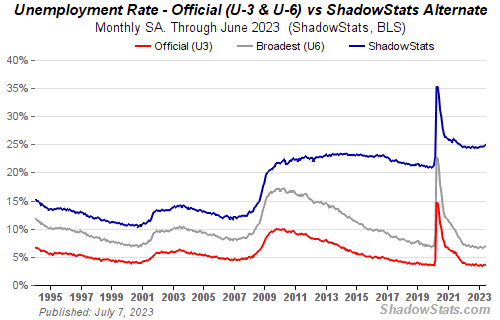0ver 90 percent are working and getting raises.
Wrong! - If you count unemployment the way they did back in the 1930s only 78% are gainfully employed. When you include long-term discouraged workers (who were defined out of official existence in 1994) added to the BLS estimate of U-6 unemployment, which includes short-term discouraged workers we have 22% unemployment in this country. This equals the Great Depression.



